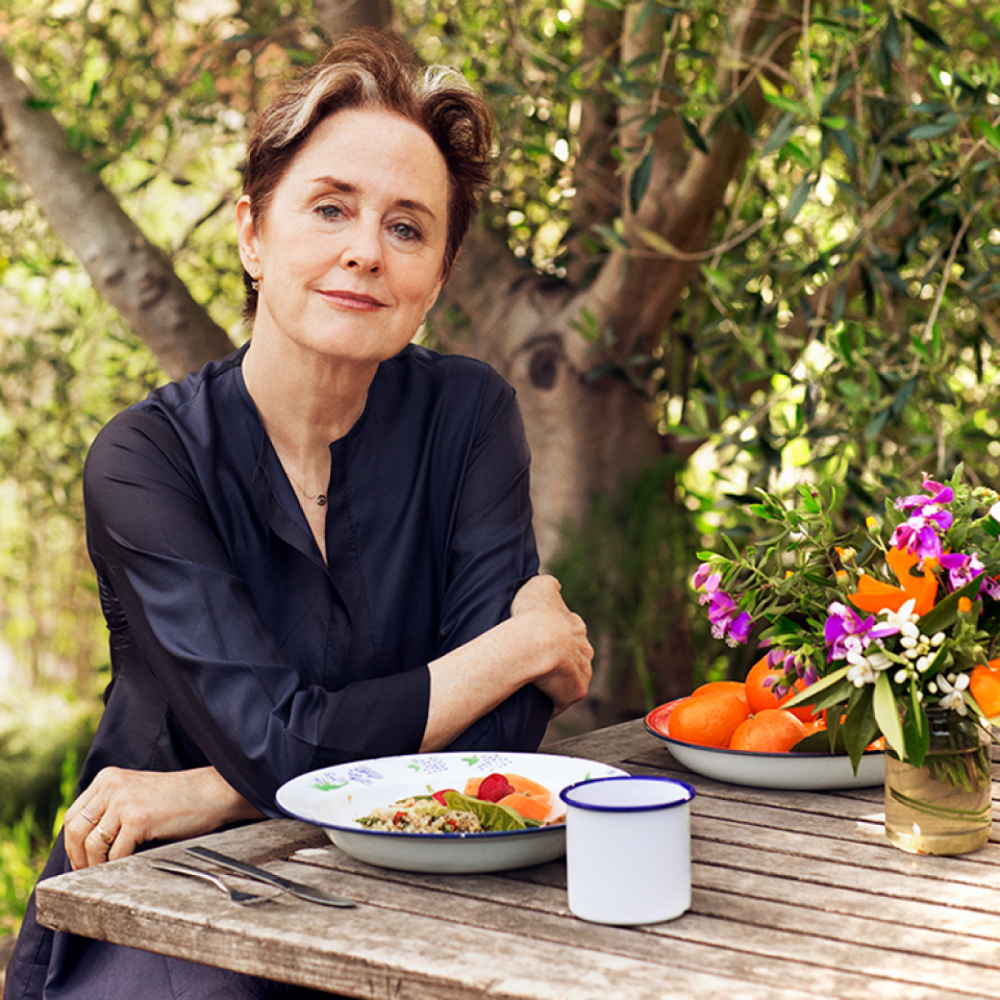Alice Waters’ Chez Panisse may be the original farm-to-table restaurant, but at almost 50 years old, it’s as fresh as ever. Likewise, the chef’s principles and worldview couldn't be more relevant today—whether it’s her belief in the power of food to connect and transform people, her appreciation for beauty overlooked or the value she places on ingredients and the people who grow them.
We caught up with Waters on Milk Street Radio to hear more about her memoir, "Coming to My Senses," her iconic Berkeley restaurant and a whole host of topics ranging from an unexpected tip for making mayonnaise to a chilling but empowering experience from her youth.
Check out a few excerpts below and listen to the full show here.
Christopher Kimball: There was a wonderful thing you wrote about your mother before she died. She said, speaking to you, “You lived the life I wanted to live.” What did that mean?
Alice Waters: She was a communist and she just felt very strongly about how much money people should make, and really was thinking about distributing things equally among everyone. I think she saw me taking those ideas. I had also learned them during the free speech movement in Berkeley in the '60s. Other parents were afraid of their kids being involved in those demonstrations, and my mother was so proud of me—that I would stand up and say when something was wrong and immoral.
CPK: You talk about beauty. You said we have no idea what it means anymore, and that we've been made to feel that beauty is expensive. You want to talk about that?
AW: We have a number of principles at the Edible Schoolyard project, and one of them is, beauty is the language of care. I think that when you put a bouquet of flowers on the table in a school that children just know something intuitively. They know that they're cared about.
CPK: You believe in the ability of taste to change people. Have you ever been able to transform someone through taste? Through the experience of food?
AW: That's what's happening at the Edible Schoolyard project, but I have to say it's more than taste. They’re also opening up all of their senses. They’re smelling things. They’re touching things as part of their math class, as they’re planting the seeds. It’s the whole experience of doing it yourself and empowering yourself around food that changes them, I think, forever.
CPK: Your favorite recipe is mint tea. I think actually when I saw you last time you made me mint tea, so explain that, please.
AW: Well, it's my favorite recipe because it only has two ingredients: mint and water—boiling water. I think it represents a kind of simplicity and clarity about that particular ingredient—that mint that you're putting in that glass. It’s something that becomes so perfumed with boiling water, and I just love a recipe like that. You’re surprised that that’s all it is. Like if you have the best tomato. A little salt, a little olive oil, that’s it.
CPK: You say you put half a potato in the end of a fork to whisk mayonnaise. Where does that come from?
AW: I don't know where that came from, but I got a recipe from a friend in the '60s. I couldn't figure out how to make mayonnaise, but when I put the potato at the end of the fork, I could make it. When I think about it, I'm sure it had to do with the flatness of the halved potato and the little bit of moisture, because that helps to make the emulsion.
CPK: You're always fighting against the parts of the culture you would describe as fast food. So your restaurant is really an expression of your view of the world today?
AW: I think you said it well, indeed. It is. I hope it is. And I hope that people that come feel that when they're there—that they feel the hospitality, the openness of the restaurant, the determination that we have around how we produce our food. We put the names of the farmers on the menu. We've done that for years and years and years. It helps to make the connections for people—that the taste comes from the people who take care of the land.
Read more about "Coming to My Senses" here in a Milk Street book review.
Check out the latest from Milk Street Radio here.




